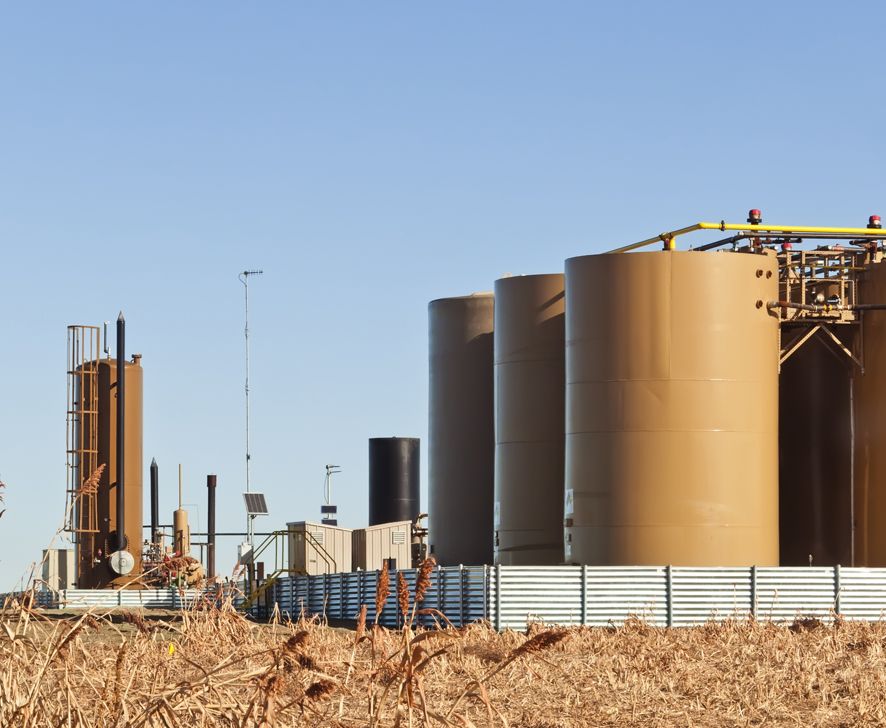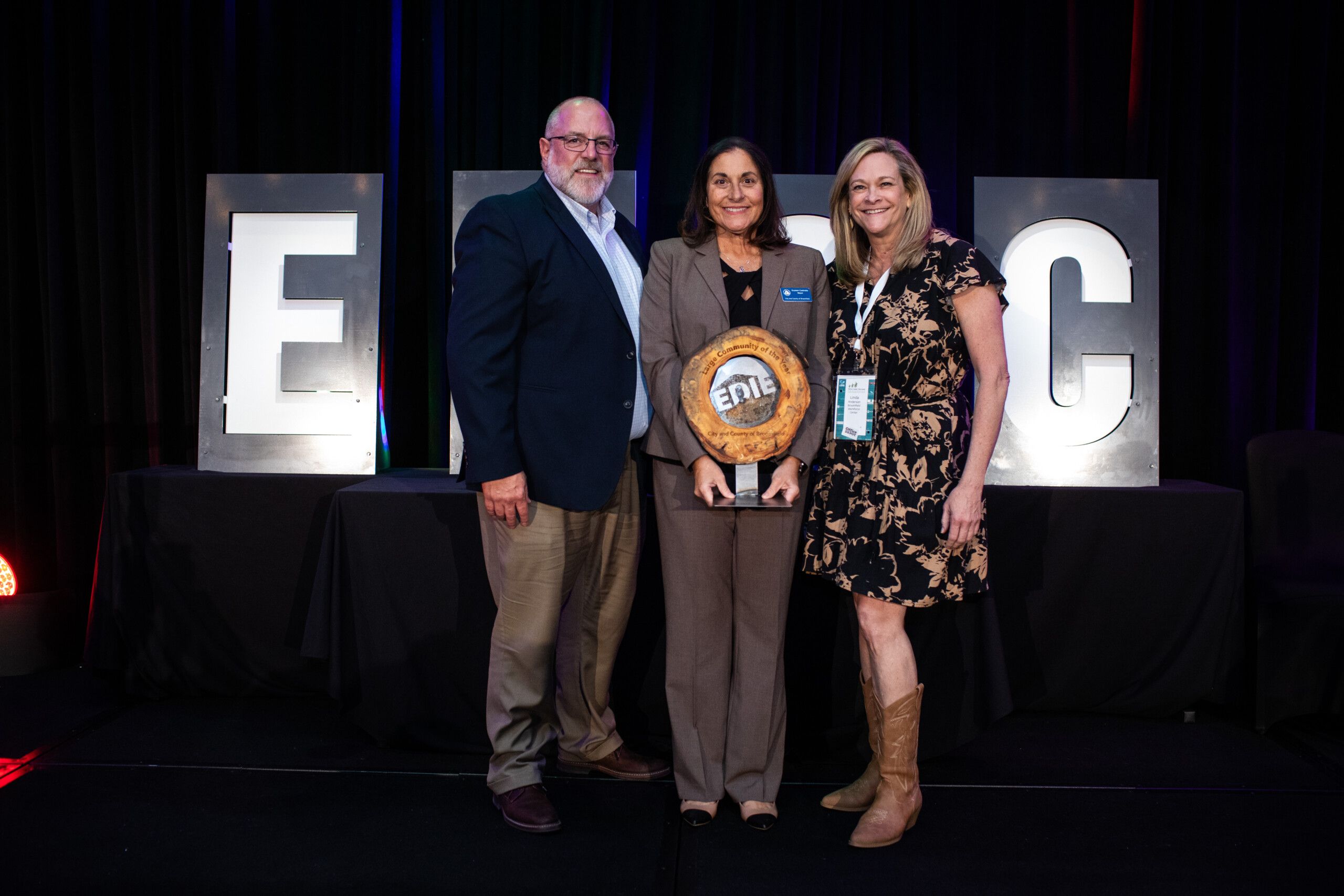Oil and gas sector’s economic impact includes help for nonprofits
GREELEY — Colorado’s oil and gas sector contributed $31.38 billion into the state’s economy in 2015, with 232,900 jobs, according to a 2017 study by PricewaterhouseCoopers. And part of that annual economic impact is felt by donations to charitable organizations, projected at $5.2 million in 2017.
The economic impact of the energy sector — and its impact on nonprofits — was the message from two panels at the Energy Summit, Tuesday, at the DoubleTree by Hilton Greeley at Lincoln Park. The event was presented by BizWest.
“The benefits of oil and gas to Colorado communities are immense,” said Dan Haley, president and chief executive of the Colorado Oil & Gas Association, highlighting a soon-to-be-released study of charitable activities by the oil-and-gas sector that found $5.2 million in charitable donations during 2017.
“This is just what we were able to collect from our members, so you know that that number is much higher,” he said.
Haley sat on a panel titled, “In the Community,” highlighting the impact of the oil-and-gas sector on nonprofits. The panel also included Ray Tschillard, director of the Poudre Learning Center; Bob O’Connor, executive director of the Weld Food Bank; and Susan Fakharzadeh, senior manager, community relations at PDC Energy Inc. and chairwoman of the Boys and Girls Club. The panel was moderated by Craig Rasmuson, vice president, community relations, SRC Energy Inc.
Haley referenced a snapshot of charitable activities by oil-and-gas companies in May:
- ExxonMobil donated almost $1 million to higher-education institutions in Colorado and $50 million nationwide.
- Noble Energy partnered with the Rocky Mountain Raptor Program to protect birds in areas in which the company operates.
- PDC Energy matched donations at KFKA radio’s program benefiting United Way of Weld County. Employees also packaged 20,000 pounds of food for the Food Bank of the Rockies.
- Extraction Oil & Gas announced that it would alter its drilling schedule near a Greeley school.
- Anadarko partnered with the Red Cross Mile High Chapter to install 100 free smoke alarms in at-risk communities.
“We give back to the communities where we live and where we work,” he said. “This is happening every day throughout the state and throughout the year.”
Tschillard of the Poudre Learning Center discussed the PLC Energy Institute, which works to inform teachers about energy derived from oil and gas and have them develop lessons that they can implement in their classrooms. The Poudre Learning Center is located at 83rd Avenue and West F Street in Greeley.
Bob O’Connor, CEO of the Weld Food Bank, said the energy sector has donated 10.9 million meals to the Weld Food Bank in the past five years, totaling about $2.1 million in value, along with more than 10,000 volunteer hours from the energy sector.
He said energy companies have donated for a new building for the Weld Food Bank, a new truck and new ovens, and was instrumental in providing relief for the 2013 floods.
“We never forget what the energy sector has done,” he said. “Without [that] support, this would not be the same community.”
Susan Fakharzedah, senior manager, community relations, PDC Energy Inc., said a standard donation of $5,000 turned into $12,000 raised for the Food Bank of Weld County to help purchase turkeys over the holiday season, with PDC matching contributions up to $5,000.
“We took a standard contribution and by pulling together a web of people, we made it a lot bigger,” Fakharzedah said.
An “Economic Impact” panel provided insights about the scope of the sector in Northern Colorado. The panel was moderated by Kathleen Sgamma, president of the Western Energy Alliance.
Kathleen Staks, executive director of the Colorado Energy Office, said that renewable sources of energy have increased in terms of their share of the overall Colorado energy portfolio, with coal dropping from 44 percent to 26 percent in the coming years.
That’s partly because of state mandates for renewable energy, but also because of plans by Xcel Energy to retire coal plants and launch natural-gas plants, even as the utility brings on more wind and solar projects.
She said that renewable-energy projects bring jobs across the state for manufacturing and construction, with the state employing 57,591 clean-energy workers in 2017.
“Clean-tech jobs are on the rise, and they are spread across all 64 counties,” she said.
Overall, the energy sector accounts for almost 10 percent of state gross domestic product, she noted, adding that, “Our energy demand is actually pretty flat.”
Tom Parko, director of planning services for Weld County, said conflicts are increasing between energy companies and residents, especially those who move into the county from outside the area. He said the county works hard to inform new residents about both the energy and agricultural sectors to avoid problems.
He said that the mining sector — which includes oil and gas — accounts for about 10 percent of the Weld County economy, while ag accounts for 21 percent. He said 60 percent of Weld County’s property-tax revenue is derived from the energy industry.
“Since 2012, mining alone accounted for 12 percent of the total job growth on average per year,” he said, with oil and gas accounting for 7 percent of the job growth.
“It’s huge in terms of what kind of impacts it means for Weld County,” Parko said.
Cathy Shull, executive director of Pro 15, which advocates on behalf of northeastern Colorado, said that as oil and gas production increases, the industry has become more attractive to potential employees seeking the industry’s higher-paying jobs.
That’s made it difficult for other industries — including dairies and other ag producers — to find and retain workers.
Shull said that energy development — including wind farms — has brought many ancillary developments to the 15 counties that Pro 15 represents, including new hotels, communities and other amenities.
She said that the Ports to Plains Alliance, a federal transportation corridor linking Mexico to Canada and including eastern Colorado, would link the oil-and-gas regions of Texas with those of Canada.
“It will provide a huge boost to our economy in northeastern Colorado,” she said.
GREELEY — Colorado’s oil and gas sector contributed $31.38 billion into the state’s economy in 2015, with 232,900 jobs, according to a 2017 study by PricewaterhouseCoopers. And part of that annual economic impact is felt by donations to charitable organizations, projected at $5.2 million in 2017.
The economic impact of the energy sector — and its impact on nonprofits — was the message from two panels at the Energy Summit, Tuesday, at the DoubleTree by Hilton Greeley at Lincoln Park. The event was presented by BizWest.
“The benefits of oil and gas to Colorado communities are…
THIS ARTICLE IS FOR SUBSCRIBERS ONLY
Continue reading for less than $3 per week!
Get a month of award-winning local business news, trends and insights
Access award-winning content today!




